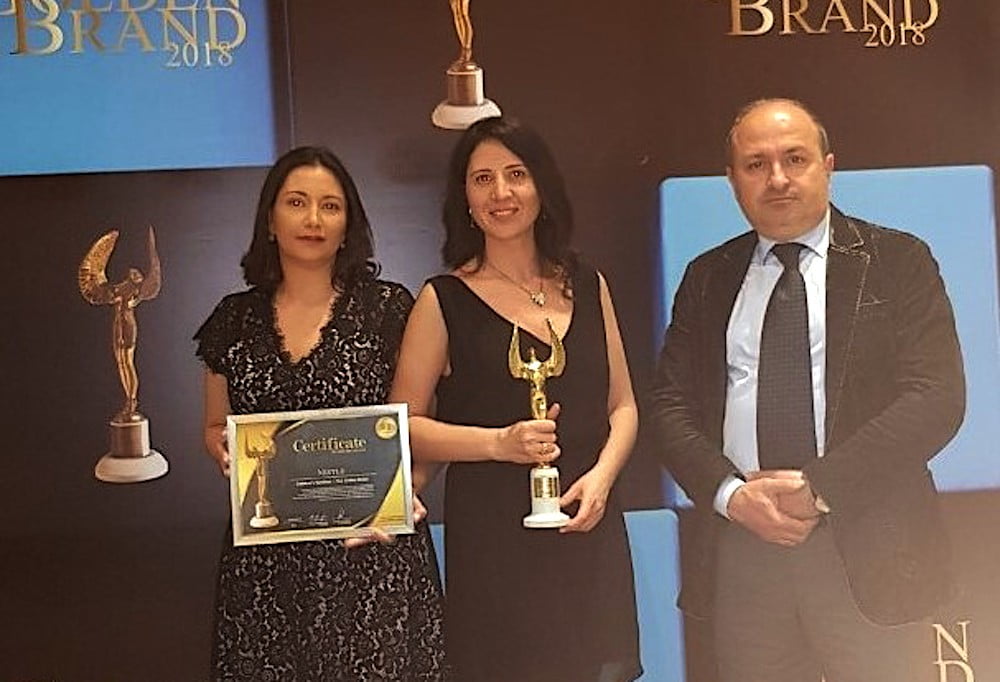
The world’s largest food and beverage company Nestlé is continuing to promote good nutrition and healthy eating habits for children in Georgia.
This year the company plans to expand its assortment and introduce new products.
Soon, new meat products by Gerber, one of the most trusted names in baby food and baby care, and now a subsidiary of Nestlé, will be appearing on the Georgian market.
More specifically, baby food made with rabbit meat, chicken and turkey will be sold in Georgia from June.
Overall, Nestlé offers Georgian customers about 63 sorts of products which are available at almost all major supermarkets, hypermarkets and pharmacy networks of the country. These products include baby milks, fruit puree and porridge.
Of these 63 sorts of products, porridges are in highest demand on the Georgian market, said Giorgi Kakauridze, Sales Development Manager of Nestlé in Armenia and Georgia.
Nestlé has been operating on the Georgian market since 2001. The company managed to become the market leader in terms of baby porridges.
For the second year in a row Nestlé won a Golden Brand award in Georgia, named by customers and over 100 experts as their favourite children’s nutrition brand in the country.
“I would like to express my gratitude to all our customers for such confidence and all the experts who have named Nestlé a favourite brand. This is great motivation for our team that will further improve the quality of our work,” said Kakauridze.
The Golden Brand award confirms Nestlé’s leadership in nutrition in Georgia.
“While choosing their favourite children’s nutrition brand in Georgia, I think the experts took into account the quality of the product and distribution and data provided by the doctors. Our advantage undoubtedly lies in these directions,” he added.
Since its foundation, Nestlé has been committed to helping parents and caregivers provide the right nutrition to their children and to launch more foods and beverages that are nutritious, especially for mothers-to-be, new mothers, and infants and children.
So far Nestlé’s result is over 1,300 new products that were launched in 2018 addressing the specific nutritional needs and gaps of babies, children, expecting women or new mothers.
Nestlé’s goal is to transform its recipes to be healthier and tastier. For this reason the company
designed the Nestlé Nutritional Profiling System (NNPS) to help understand the nutritional value of Nestlé’s foods and beverages. It’s based on sound nutrition science and public health recommendations.
The system works by looking at where the product fits into an overall diet, what public health issues might be relevant, whether people are likely to eat large amounts (such as cookies), and what typical serving sizes will look like.
Using this, Nestlé is able to create high-quality products with an understanding of their nutritional impact.
Also last year Nestlé launched organic versions of family-favourite Nestlé breakfast cereal brands Chocapic, Nesquik and Cheerios.
The range is made with the same high-quality ingredients customers would expect from a Nestlé breakfast cereal, and are officially certified organic. Similar to their conventional versions, the new organic variants contain wholegrain as the number one ingredient and are free from artificial colours and preservatives.
Nestlé already reformulates around one third of its product portfolio every year. It will use its industry-leading innovation capability to further enhance foods and beverages for children with even more fruits, vegetables, fibre-rich grains and micronutrients. Nestlé will also continue to reduce sugars, salt and saturated fats.
Nestlé is a company that promotes breast milk, saying it is best for babies and provides ideal nutrition.
“We support the World Health Organisation’s (WHO) recommendation to exclusively breastfeed infants for the first six months of life, followed by the introduction of adequate nutritious complementary foods, along with sustained breastfeeding up to two years of age and beyond.
“Globally, it is estimated that breastfeeding could save more than 800,000 children’s lives, prevent 20,000 maternal deaths due to breast cancer, and add over USD 300 billion (CHF 295.6 billion) to the economy each year (UNICEF),” Nestlé says.

